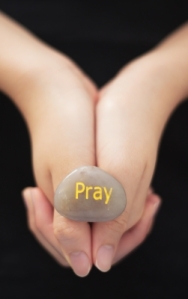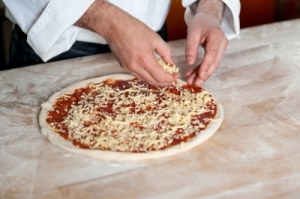
Scrupulosity. Such a funny sounding word to me. I’d never heard of it before Blake was diagnosed with OCD. After that, I thought for a long time that it was about being very religious, or rather, religious rituals being a part of OCD. And that is true, to a degree, but there is more to it. According to the Fact Sheet on Scrupulosity from the International OCD Foundation, scrupulosity is:
“A form of Obsessive Compulsive Disorder (OCD) involving religious or moral obsessions. Scrupulous individuals are overly concerned that something they thought or did might be a sin or other violation of religious or moral doctrine.”
So, it’s not just religious in nature. It’s also about morality – and about being a “good enough” person. The scrupulous individual might wonder, “Did I thank that person enough?” “Did I accidentally look at someone the wrong way?” “Did I think about something that is unacceptable?”
When Blake was diagnosed with OCD, he had the more common obsessions about germs and rituals that involved over-washing. He also did some tapping. Scrupulosity, though? I thought we’d never see that in him. Boy have I learned a lesson about assuming “never.”
While Blake’s first go round in treatment addressed these earlier symptoms, and he made a terrific recovery, this new bout he is having with OCD emerged just as he was hitting puberty. The first thing I can remember seeing is him having an overwhelming responsibility for litter. The teachers at school were trying to imbue in these 7th graders a sense of responsibility for keeping their environment picked up.
Blake picked right up on this, and made sure his classroom was completely clear of litter. I can recall waiting for him after school on numerous occasions where he didn’t show up for 15 minutes after school had ended – long after the last student had wandered past me. He’d come rushing out, looking flustered.
“Sorry, Mom. I was cleaning up.”
Soon he couldn’t walk past a piece of trash on the ground without panicking and having to stop and pick it up. Then came the incessant need to say, “Thank you” and “Bless you.” Then came the religiosity. More and more prayers and religious rituals infiltrated our lives – a surprising thing from a child who, previously, had argued with me vehemently that I was making him hate religion by sending him to religious school.
When we re-entered treatment, many of Blake’s scrupulosity symptoms responded well to Cognitive Behavior Therapy – and Exposure with Response Prevention. The “thank you’s,” “bless you’s” and litter pick up fell away (except when appropriate). The religiosity proved more difficult. It was tricky because true religious observance was intertwined with OCD ritual. Blake wouldn’t tolerate having them pulled apart, and when he finally refused any more treatment, the religiosity was deeply entrenched.
A Small Move In A Positive Direction
In the time since he left treatment, Blake’s religiosity has remained an untouchable domain. He prays. He repeats his prayers. He repeats them again – or perhaps he starts over midway through. He has taken to consulting with religious “experts” about his behavior, sometimes going to people we trust and sometimes going to internet advice-givers who are complete unknowns. In most cases, he takes the advice to the extreme, holding himself to some higher authority (that higher authority being OCD’s never-ending doubt and uncertainty).
This past week, there was a small shift, yet big just the same. Blake was in another religious crisis. He’d discovered yet another of his religious and moral failings and he was desperately searching for guidance on what to do. He called my brother-in-law. He researched the internet with zeal. He cried at what he read and tried to hide his tear-reddened face from me. This issue was cutting at something very dear to his core and my husband and I wondered how this would affect his way of life. Then, suddenly, there was peace.
“I learned something this week,” he told me.
“What did you learn?”
“I learned that I have to start trusting myself more.”
“What helped you realize that?”
“I was reading through all these opinions. And then I realized that what people were saying I know deep down is not true. I completely disagreed with what they said. And that’s when I knew that there may be lots of opinions out there, but I have to do what I think is right.”
And just like that, he decided that his behavior was not some moral or religious failing that had to be rectified and atoned for. Now this is really small, and yet it is really big. Blake has never before questioned the most extreme religious opinion out there. It becomes the new gospel – and then OCD takes it even further. This one time, he let his own conscience and belief be his guide. One time – that’s all it takes to begin.
Could there be more in the future?




![IMG_1917[1]](https://ocdinthefamily.files.wordpress.com/2013/11/img_19171-e1383509786329.jpg?w=271&h=300)
